Josie McKee | Part 2: Exploring Identity and Discomfort
In this, the second of two episodes with seasoned big wall climber Josie McKee, she and Kris sit down to discuss how her recent trip to Yosemite turned out – what went well, what didn’t, what she might do differently to prepare for future trips, and so forth. But the conversation goes far beyond training and tick lists as they consider some hurdles every climber faces at one point or another, hurdles that can hold us back from a fulfilling and sustainable relationship with climbing.
If you haven’t listened to the first episode with Josie yet, do so HERE! Also be sure to check out Josie’s recent blog post HERE!
Photo: Drew Smith
Photo: Jenny Walters
Photo: Jenny Walters
FULL EPISODE TRANSCRIPT:
Kris Hampton 00:36
What's up everybody? I'm your host, Kris Hampton. Welcome to the Power Company Podcast brought to you by powercompanyclimbing.com. This is part two of our exploration of climbing and identity with Josie McKee. So if you have not yet listened to part one, you should go do that. Today, in this episode, Josie has returned from her trip, and we discuss how it measured up to her expectations. But maybe more important, we start to lay out some of the things that we all will wrestle with at some point, and how we can make climbing a more sustainable, joyful thing for ourselves over the long term. Let's get into it.
Kris Hampton 01:24
You know, when you bump into a climber you haven't seen for a while or you get together with a climber you haven't seen for a while, you're immediately talking about ‘what have you been climbing on? You know how’d the trip go?’ things like that. It's so hard to not ask that question immediately. So, like getting the mic set up and getting us sat down to talk about it, I've been like chomping at the bit to ask these questions about how the trip went. You know, we talked so much about how you hoped it would go and what you've been preparing for, that I've just really needed to know.
Josie McKee 02:08
Well, I think it's funny because I was just reading this thing about conversations with people and how opening with, you know, how have you been? It's just such a weird question. Because you're like, wait, you want me to summarize everything in a quick sentence? So it's, it's hard to? It's a hard question to answer. Right. But that's what we're doing with this whole time.
Kris Hampton 02:31
Yeah, we're not doing the one sentence answer at all. It's like, let's, let's dig deep into how things went.
Josie McKee 02:38
Well, and, and for the one sentence answer, like it went really well. It was a great time. I love Yosemite so much. And this was, this just reinvigorated that love.
Kris Hampton 02:50
So we ended the last podcast by me suggesting you might become a sport climber full time, or boulderer even. You just made it sound like you might go back to the valley. So now we have to see what's going to happen. I kind of want to break it down. Three different ways, like talk about how it how the preparation went, physically, how it went. Tactically, logistically, especially since it seems like every places weather has been weird this year, like West Coast has been really snowy, wet. East Coast has been forever November. So I'm curious to hear how that went. And maybe most how it went mentally and emotionally. And, and how, like you just mentioned, you're feeling like your identity as a climber is shifting or solidifying, or whatever. So let's start physically, we're just going to jump into this thing. What about the preparation that you did went really well. And I think this is going to be a question that a lot of people are asking, because training by sport climbing to go climb on big walls on granite in Yosemite might seem really foreign to people.
Josie McKee 04:26
Yeah. So I think something that's really interesting with this preparation, that was hard, but what worked really well was being committed to preparing for big objectives. When everyone around me all summer was working on their hard projects. I was not doing that. Like I had some projects, but I wasn't limit projecting. I was instead climbing a bunch of pitches of 5.10 and 5.11 and then going and trying, too, some mid 5.12 things so that I could see if I could execute 5.12 climbing when I was already physically fatigued. And like it, it worked super well. But it's really hard to do that when you're in a sport climbing place, and people are psyched. And they're like what are you working on and I'm like, nothing to write home about.
Kris Hampton 05:22
Yeah, it's much easier for, like, to find partners to schedule your days out, if your objectives sort of line up with someone else's. And that's tough to do when everybody's projecting and you're not.
Josie McKee 05:38
Yeah, what turns out, it works pretty well is like I was doing some, like, up down up laps, or doing something like, you know, low 5.12, resting for a short duration, and then doing it again. And doing those things quickly, actually aligns well, between someone else's redpoint burns, like it takes us less time probably than a long, like a beta suss of a project or something like that. So it balances out like nobody was doing exactly what I was doing. But I could still share the crowd with the partners and have that same rotation of back and forth.
Kris Hampton 06:21
Yeah, I also think you just said something really important that I think gets glossed over a lot is you were doing like up and down pitches. And one of the benefits of learning to downclimb, and spending time climbing down and getting proficient at it is that you just feel really proficient moving around on rock. And that's a, that's a really underrated skill, especially for it's especially valuable for climbing on big objectives. You want to be able to move in any direction competently and confidently. At any moment.
Josie McKee 07:02
Yeah, no, absolutely. It's, it's interesting that you brought that up, because something that I wanted to talk about something that I found this physical preparation really shined with was I just felt so much more comfortable and everything was more relaxed, like I was able to keep climbing hard, even when I was tired. And then I was also able to like, dig deep, even when I was halfway up the wall on a down climbing pitch. Like, it just all felt like I could, I just felt this sense of I'm capable of being here. Like I belong here.
Kris Hampton 07:43
That's cool. And you felt strong enough to do the moves. You wanted to do all of that. I mean, do we ever feel strong enough to do all the moves we want to do? But you felt like you were well prepared?
Josie McKee 08:00
Yeah. Yeah. And I think something that I realized on this trip, and this kind of goes into the mental aspect of it too. But we know that mental and physical are overlapped. So for sure, right now, but the, the feeling of being strong and confident is, was surprisingly a new feeling to me, like it was a different switch that flipped for me. And I realized that I had been climbing for most of my life, in this sense of kind of constant tension and stress. Because when you try climb on big stuff, like it's a little scarier. It's a little more shuras. Yeah. And I think I was operating so much at my physical limit, still in these environments that are actually dangerous for many years and getting away with it, right, but just climbing with so much more physical tension in my body from stress of like, not hurting myself. And this physical preparation of just being a little bit stronger than the pitches that I was on. came across with this, this feeling of ease and fluidity with the movement on pitches that I have climbed on before. I was like, Oh, wow, I don't feel stressed here anymore. Right. It was pretty cool.
Kris Hampton 09:30
How much do you think your like familiarity with Yosemite with the airiness with the, with granite techniques and crack techniques also played into that? And I ask because it's not, I don't think a person who's never been to Yosemite, who's only been training as a sport climber, is going to experience exactly the same thing.
Josie McKee 10:00
No, I think that the you know, people say that toss around the 10,000 hours thing is like mastery over something like I have no idea how many hours I've spent on granite but I also going back to granite on this trip, I was like, Oh yeah, I'm kind of a granite wizard. Like, I'm good at this stuff. I love it. It's, it's like, you know, weird body, body position tension, pressing on thing like trusting things that are not holds. Like all this stuff that you have to learn how to believe in Granite climbing. Yeah.
Kris Hampton 10:36
Yeah, I have. I might have even talked about this. In the first episode. I'm pretty sure I did. Watching Ron Kauk climb on granite. When I was a young climber, it was like, oh, there's a, there's a level of Wizardry here that I have not yet reached and may never reach. But having that mastery of the style, of the belief in the style, I think is so important for being able to transfer the skills that you, the physical skills that you gain sport climbing into that, that granite world.
Josie McKee 11:18
And you mentioned Ron Kauk, I'm, like don't say the words mastery and me in the same sentence as Ron Kauk, like, huge amount of humility there.
Kris Hampton 11:29
I mean, there are levels of Wizardry, you know, Ron Kauk’s wizard hat is bigger and pointier than all the rest, I think, when it comes to granite climbing, but I, it excites me to hear you say that out loud, like a granite wizard. It's exciting to hear someone be confident that way in their own skills.
Josie McKee 11:57
Yeah, I mean, I have a hard time saying things like good about my climbing in general. Like, so I'm a little embarrassed now.
Kris Hampton 12:04
And I suspected that. But no, don't be don't be embarrassed at all. That's, that's why it excited me.
Josie McKee 12:10
But I had these moments where like, it just clicks where you're like, Oh, my God, that works. And I just did like, I didn't know the beta. I just did it. Yeah. Because my body naturally knows how to do it. And it's such a cool feeling when you just flow through something like that. And I had one of those moments. And then a few minutes later, somebody that was working on the same pitch as me, it was like, I don't know what you were standing on. Like, you just float it up like that. Like it was so easy. And I was like, yeah, no, like, it felt really easy and cool. Like, it's surprisingly easy, even though it was hard.
Kris Hampton 12:50
That's awesome. I love it. Are there parts of that that you think could be dialed in more? If you were going to repeat the same thing? Starting right now? What would you dial in a little further?
Josie McKee 13:07
I just need to be stronger, like just keep getting stronger? Getting stronger? Right?
Kris Hampton 13:11
Yeah, I think that's an, that's a, that's a great answer. And I think the interesting thing about it, again, is that that can be a valid answer for you. You know, but like I said before, the person who's just taking their first trip or even their third trip to Yosemite, if you've spent a total of 25 hours climbing on granite, just getting stronger probably isn't the right answer for you. It could still be helpful, but it's going to be less helpful for that person than it is for you because you get to translate it.
Josie McKee 13:49
Yeah. And I think that going like I did a little trip to Vedauwoo, right before going to Yosemite. And that could be for somebody who's in a similar situation, but doesn't have as much background climbing on granite, a longer trip to somewhere nearby climbing on granite. For me, it was maybe, it was helping me build the familiarity back with granite and reminding me to place gear like plugging the right pieces first go, that kind of thing. But I think more than anything, it was like a reminder in my mind that like oh, yeah, Josie you know how to do this. And the Vedauwoo trip also went really well and was a blast. Like climbed for I think two days. Three days. I don't know. It was it was a short trip, but it was really fun.
Kris Hampton 14:40
I love that place. Yeah, we should just go down there sometime.
Josie McKee 14:43
Yeah, that'd be cool.
Kris Hampton 14:44
I love it. Yeah, I agree. And I think even if you're like looking to prepare for a big trip like this and all you've got available sport climbing, if you can even find it doesn't have to be in Istanbul. Boulder problem, like if you can climb on vertical to slabby, relatively polished granite, you know, even if it's 10 feet tall, you make yourself some rules and learn how to stand on polished granite that's going to go a long way beyond what you know sport climbing on sandstone or something is going to do for you
Josie McKee 15:24
Totally. And then for all the Lander climbers here, the Killer start that you all hate is kinda like climbing on slippery granite and I climbed killer a lot last year.
Kris Hampton 15:35
Yeah. Standing on all those little smeary slippery feet when you look at it, and you're like, I'm not stepping there. You know, but you know, you need to step there. That's the kind of climbing you need to do.
Josie McKee 15:47
I climbed it so much. And I kind of love it.
Kris Hampton 15:50
Same.
Josie McKee 15:52
Yeah, it's hard. But it's, yeah, it's fun.
Kris Hampton 15:55
Were there holes? Was there something you got there physically, other than I just need to be stronger to do harder things. Was there something you wish you would have done?
Josie McKee 16:07
I don't really think that there's anything that I wish I would have done differently. Like, I think I was as prepared physically as I could have been. With the amount of time that I spent preparing for it.
Kris Hampton 16:21
Yeah, that's great. Shout out, Alex and the climb strong team. Yeah. for bringing that together. That's a hard thing to do. You know. And I think it sounds absurd to a lot of people to, I'm only going to very largely sport climb to prepare for big wall climbing. But, but I think it can be really effective. And I think you're, you're proving that. Let's, before we dive into the like, mental emotional side, which might be the hardest transition to make. Let's talk tactics and logistics. And I'm thinking like, how was the weather? Partners? How did all that play out for you?
Josie McKee 17:15
Yeah, so this is probably the hardest part of big wall climbing, at least for me. Yeah. So this was the first time kind of ever that I've like gone to Yosemite on a trip without a partner planned out. I had like, I mean, I've spent so much time there, I have community there, I have all these people that are psyched to go climb with me. But I didn't have the one partner. And it was kind of cool in a way. Because I was like, I'm focused on these things. And I would just get people to go that we're psyched to go do these things. And a lot of times just supporting me, which was also kind of new to me. Getting someone that like didn't actually have their own objective on a big route to just be like, Heck, yeah, like, I'll go up there with you. That'll be rad.
Kris Hampton 18:12
That's awesome to have. Yeah. And you get to, especially in a situation where you're coming in, like physically strong, feeling confident. And then you get to feel like this superstar that is being supported, you know, fully supported by someone else. That's a cool feeling.
Josie McKee 18:27
It was pretty fun. Yeah. So I had that on a few occasions. And it was also really nice to just tap back into the community and either get to know people better that I had known before, but had like, never climbed with or barely climbed with. And then meet some new people and get psyched on some similar objectives with them. Yeah, the hard part about it was that like, I will go climbing with one person one day, and then the person that I talked about climbing with later in the week, like wound up going climbing with somebody else, the next day and rest days just weren't aligning very well. And you just get worked. You're not climbing one day on one day off there. Yeah. Climbing a big wall in a, in a day.
Kris Hampton 19:12
Yeah, supporting is still pretty hard work.
Josie McKee 19:17
Yeah, and like, I mean, when I say supporting, I'm not talking about somebody that's like just jugging my lines or whatever, but like, just somebody that's like, Okay, you lead the pitches that you want to lead, like, I'll help you get there fresh or, or I lead everything and they were following like, whatever those logistics look like I wasn't fully putting people through slave labor totally. Although that might be potentially the best method.
Kris Hampton 19:44
Yeah, that could be a really great method. I mean, we've seen it work for a lot of superstars.
Josie McKee 19:49
Yeah. So I don't know if I've quite achieved that superstar status or not.
Kris Hampton 19:58
If you had to do it again. And would you go in the same way? Or would you rather go in with a, like specific partner who also has an agenda?
Josie McKee 20:09
Well, I think the one thing and this is this goes into the other component of logistics that you're talking about, which is whether was that I went in with this casual mentality that like I had as much time as I wanted, and I could just work on these things with different people until I was ready to go give the thing go, right. And I got to that point, a little bit more slowly, because I was casually going about it. And then we had a giant snow dump. And in mid October, I guess we had a small one in mid October, and then another one, like, end of October or something like that. So conditions kind of got shut down for me.
Where I think like, so to simply answer your question, I think it would be really good to go. Next time I go, if I'm, if I'm gonna, like try to execute with someone who is also trained and prepped for this, because a lot of the people when I showed up there were like, oh, yeah, it's like your sending season, let's get warmed up by doing this or that. And like, we did a handful of other like, shorter, long routes, and then went cragging a bit or went part way up things. And it was like, it was fun. And it was like getting people warmed up for it. But I was like, I got there ready to perform. I was ready. So somebody else that's trained up too would be good.
Kris Hampton 21:43
Yeah, you can take advantage of the windows much easier if you show up prepared.
Josie McKee 21:49
And I was I mean, I was probably losing fitness there. I was certainly losing fitness there.
Kris Hampton 21:55
Yeah. And that's definitely a different paradigm than the normal like Valley season. Or it's like you roll in you, you gain your fitness by going cragging by going up easier things. And then as the temps get good in the fall, you're you're like starting to hit your stride. So you're that I think that's really smart coming in. And next time thinking I'll do it with a partner who's also trained up. Super smart way to go about it. And yeah, that's not to say there's anything wrong with the like, the slow approach of gaining the fitness especially to learn how to climb on granite to learn the logistics and tactics necessary to climb these big, hard objectives. That slow build is probably the better way to approach it initially, for most people.
Josie McKee 22:55
yeah totally. And it like it's a way that works really well and has worked for me getting up to a certain point in my climbing but right now I'm like, Alright, if I want to do things, I got to do them. Because, yeah, the weather like, conditions are such a big thing. And it goes from really hot to really cold.
Kris Hampton 23:15
Seemingly less predictable now.
Josie McKee 23:17
Yeah, totally.
Kris Hampton 23:19
Maybe that's like, the like phenomenon of just getting old and thinking everything was really easy to predict back in the day or something, you know, I don't know. But it certainly seems like the weather patterns that existed 20 years ago, 10 years ago, are dramatically different now.
Josie McKee 23:41
Yeah, it seems like that for sure. Especially when just with the way the weather went, there was literally like maybe four or five days of perfect conditions and October before like when I first got there, it was too hot. And then it got perfect. And that it snowed. And I feel like it used to be like all of October was like that. Yeah, like nice, cool, crisp, clear.
Kris Hampton 24:06
Yep. I'm curious. Are you the kind of person I think it can go one of two ways. Like you come in with a big objective. But the weather is not looking ideal. Do you wait it out? Hope and see what the weather does? Or do you change gears and go somewhere else?
Josie McKee 24:33
Um I would say that I've done both but on this trip, I was just like, well seems like like their seepy cracks. Not going to be able to do the climbs like the free climbing the hard free climbing that I had wanted to do. Yeah. And I had a partner that has been, we climbed together for our first time on this trip. But she had been kind of itching to get back on some more speed climbing stuff. And so this is a bit of an epic adventure that I got myself into, but just kind of decided to switch gears and stay in Yosemite. Yeah, be able to do some other stuff. So after that big snow dump in late October, we decided, we waited a few days, waited for the snow to melt on the valley floor. Like, it was pretty nice weather out, but still cold at night, like in the teens or 20s at night. And we decided to climb The Nose one day. And this was our first time climbing together as well, I think we've done like, a little bit of working on one single pitch. And then we're like, Alright, we're gonna go do another today, which is like, sounds sort of silly and wild. But this is not the first time I've done the nose in a day. First, with the first time climbing with someone, like, if you’ve both done it enough times, it's not as big of a deal.
Kris Hampton 26:04
Yeah, you could just trust the other person's skills if you know that they know how to do it and have already done it. Yeah.
Josie McKee 26:12
Yeah. And so well, so this is my friend Kate. And a mutual friend of ours had been telling us like, we should go climb together, we should do these things together. And so we're psyched, like this has something to do with the less than perfect conditions. And we got up to the Changing Corners pitch which is pitch, what, 20 something?
Kris Hampton 26:34
Yeah, way up there.
Josie McKee 26:35
And it's like, you know, it's pretty short days. So the sun is just going down, and I get to camp six, which is like a table sized ledge. And it is under a waterfall. And I'm like, okay, maybe I should just strip down so that I don't get all my layers wet while I climb through this waterfall. So getting ready to do that she jugs up and has a rain jacket. So I put on the rain jacket for the lead. And then untie the end of the rope when I get to the top of the pitch and lower her down the rain jacket for the jug. This point, it's like it's taken way longer to climb these pitches. Yeah, like and these don't sound like speed climbing tech, we're not speed climbing anymore. And she had brought one of those Beal Escaper things. People aren't familiar with that it's a, we can repel something with a single rope and jiggle it loose and it comes down. And I was like I have limited trust in this concept for absolutely most of El Cap with question. And so I didn't even think about using it. I'm like, oh, changing corners, like on a normal time up the nose changing corners, you're like, under an hour to the top, like, maybe 20 minutes the top if you're going really fast. And so I just didn't think about it. But then I proceeded to climb through wet cracks the rest of the way. And we don't top out until 10 at night and then we get on top and it's freezing. And we're wet. And luckily we had stayed sort of dry. Then we try to go down the east ledges and the East ledges is like ice. So we're like, Alright, we're gonna walk out the Yosemite Falls Trail, which is eight miles and we start going out the Yosemite Falls Trail in like ankle deep snow, and then eventually it's knee deep. Eventually, it's thigh deep. And we're like this is not going to work. I'm gonna get frostbite. It's in the teens, my feet are completely soaked. Like, we got to go back. We got to do something. So we actually wound up spending most of the night like standing in the woods. Dancing to keep our feet warm and trying to figure out what the hell to do. And then we decided that the best option is that we're going to rappel all of El Cap.
Kris Hampton 28:54
With the...
Josie McKee 28:55
With the, with the Beal Escaper. And now we haven't eaten anything.
Kris Hampton 29:00
I don't know which I would choose frostbite or trusting that thing.
Josie McKee 29:06
Well, I yeah, that's I was feeling about that way. But Kate, Kate had all the psych for that. She's like, I got it. We can do this. I'm like alright. She's used it before. I don't know. She had faith. I was like, oh my god, I haven't eaten anything. I'm dehydrated. We haven't slept all night. And now we're gonna go rappel 3,000 feet on a single 70 meter rope like this is the most heinous thing I've ever considered doing. This sounds awful. This is my worst nightmare. Sounds terrifying. But luckily as the sun came up the next morning East ledges had like softened a little bit and we were able to swim our way down through a steep snow and Manzanita's and get down the normal way.
Kris Hampton 29:48
Wow, that's terrifying.
Josie McKee 29:49
So that was a long segue to answer your question, was, I like tried to bang my head on the wall in Yosemite and continue to climb in Yosemite because I was psyched that I pretty I just threw in the towel after.
Kris Hampton 30:03
Well, I'm gonna also, you know, bring this back around to the, the idea that you making that choice is different than a person making that choice who was on their first big wall, you know, because you have the skills to figure that situation out on the fly. And to understand here are our options. Here's what we do, there's no, there's not a good way to prepare for that other than to be in epic situations, multiple times that are increasingly more epic, you know, it's not like, it's not like Alex was gonna program in like, Okay, you're gonna go to an all night rave, and then you're gonna stand in a kiddie pool full of ice for a few hours. And you know, he wasn't gonna program in all these specific things… maybe you’re listening too? But it was those years of spending time getting yourself into situations that helps with that.
Josie McKee 31:16
Yeah. And while Yosemite is not one of those places that you normally deal with those kinds of conditions, like climbing in the Alpine, I was like, oh, it just all of a sudden got Alpine in Yosemite Valley. Yeah. Okay, this is what I know how to do. Like, I can suffer, I can be really cold, I can stay up all night and still function. Like I don't want to, but I like, I can keep putting one foot in front of the other in those kinds of situations for sure. Which, to my detriment, like, honestly, I felt really stupid continuing to climb upward when we got to the changing corners, and it was in that condition, and it was getting dark. And it was cold, like, look, in hindsight, which we all know hindsight. Like, if I had really thought through what it was gonna be like to continue to climb through wet conditions, and then top out in snowy, which it was just way more snowy on the valley room than we expected it to be based on the conditions of the valley floor. But like, I would have failed from that, like, I would have chosen the below escaper for the handful of pitches that you needed, that have the full 70 meter rope to get down off the nose. And then you can use half of 70 for a lot of it. If I had really thought about it, but I didn't think about it, I just you think about climbing El Cap and you're like that high up, like going up, bailing up is the best way I've bailed up from multiple points on El Cap, plenty of shorts, where this is like, I don't want to be here anymore, but it's gonna be easier to just get up the thing.
Kris Hampton 33:04
I'm curious, do you think? And you know, feel totally free to say no, that's not it at all. Do you think part of that decision was having spent so much time out of the like, of that sort of decision making? Going cragging in Wyoming is a radically different set of decisions that have to be made, you know, you can be back at your house and 30 minutes from almost anywhere in sinks, Canyon, so is is it partially like atrophying decision making skills in that environment?
Josie McKee 33:51
I'd like to say yes, right now, but really no, Kris. It's because I'm a hard-headed mother fucker.
Kris Hampton 34:01
Well, that's good to know too.
Josie McKee 34:06
I was actually just teaching a wilderness medicine course again, for the first time in a little while. And I like to tell the stories of like, when I was younger and dumber, and made hard headed decisions. And I've definitely done that when I'm teaching those courses like yeah, when I was younger and dumber last week?
Kris Hampton 34:27
Yeah. I was gonna say this is one you can tell in the future then, when I was younger.
Josie McKee 34:32
Yeah. But I mean, I get better at it every time and I like to take these experiences and learn from them. Yeah. But sometimes, I think what it is, is that you don't realize you're making a decision. You just are continuing to go about what the plan was, rather than constantly reassessing, constantly reassessing, and the more aware and present you are with the situation at hand, and awareness that you have that like a decision is being made every time you take action to do anything, then you can make more conscious decisions. But I just wasn't in that mode, because I was still just in going up mode.
Kris Hampton 35:19
Yeah, that's a really smart way to look at it. That, that every time you take action, it's you making a decision. And keeping that in mind. Super smart. Let's move on to the mental/emotional side of it all. It's interesting, you started this all out by saying it, it went really well. And then you start saying, well, the weather kind of crapped out, and we got ourselves into this epic. And, and I'm not saying that, that means it didn't go well. I just think it's great that you're still saying it went really well, despite all of these hurdles. And I think that has a lot to do with your mental and emotional stamina, maybe.
Josie McKee 36:18
Yeah, I mean, I think it's, uh, the specific thing that I would attribute this to, is my goals going into this trip, which are not the specific type of goals that people think about of like, I want to send this thing but that I wanted to go experience movement on the big stone, and I wanted to learn, and this is like, this trip is a training trip for the next big trip. And like, every time you're learning and growing, and that element of it is like, it's the thing that can make it every time, a good experience. Because you can always learn something you can always like, as long as you're going climbing, you're getting to move on the rock.
Kris Hampton 37:05
Do you think that's easier to come by for people sport climbing? Or is it harder for people to come by that sport climbing like there's a lot of, it's a simpler thing. But then there's also a lot of baggage tied, tied to grades and performing in front of people. When sport climbing. So I'm curious with you having like, gone really deep in both worlds? What do you think?
Josie McKee 37:37
So it's interesting, we were just watching Pretty Strong last night. I hadn't watched it in a few years. And the film with Nina and Katie climbing on middle cathedral. Really fun to watch them try hard up there on that. They were too… Oh, I think Emily Harrington was talking about big wall free climbing as like a setting context for this portion of the film. And she was like, you know, red pointing a hard pitch when you've already put in all of this effort to get up there, like they had climbed all these runout scary 5.10 and 5.11 pitches, plus some five fall pitches, to get to these 5.13 pitches, and then you're like, having one little thing go wrong that's making you fall? To redpoint that, like there's so much more like, more pressure that goes into, like trying to send that stuff. And I feel that for sure. Like listening to her say that I was like, yeah, like, there's a lot that goes into that. And so, and I was, I was laughing, thinking about all the people here that get so frustrated when they don't send on that go on their sport climbing project, right? Like, who cares? You pack up, you go home, you rest a day, and then you come back again. Yeah. And I think that putting those kinds of efforts in when you're somebody who… has made it, has made it easier for me on the sport climbing stuff to not have that kind of pressure. Like I just can't really care that much about sending one pitch, this go. And then learning to do that, realizing that like, oh, yeah, this go doesn't really matter. Even, even with all of the preparation that went up into getting up there on a wall. Like you're still getting something out of the experience, even if you don't send this go.
Kris Hampton 39:35
Right. What matters is that you're putting the effort in, you're staying open to, to learning whatever it is that you, you need to have in order to reach whatever that destination might be.
Josie McKee 39:53
Yeah, yeah, exactly. It's, I don't know. It's just a different perspective to take on it. It's like, it's the long game of like, being a better rock climber.
Kris Hampton 40:05
I think it's interesting too, to pull that out of training for an objective. And I think a lot of people get trapped into, ‘I trained for this, I prepared as well as I could prepare for this. So now I deserve to do it.’ Or like I'm owed this send somehow. As you're like, building up your mental coaching business, I suspect you're going to come across a lot of people who are hitting this wall of ‘I trained, I deserve it. Where is it? Somebody better give it to me.’ How do you, how do you help people avoid, how do you avoid it? I mean, part of it is certainly because you came from this background that you came from, but how do you avoid getting caught in that trap?
Josie McKee 41:05
Well, it's interesting, because one of my clients actually asked me this question, this very same question pretty much because she had been training to do the nose in a day. Yeah. And then her partner got injured. And conditions were wet or like, all these things fell apart. And she was like, really disappointed in it. And like really struggling with this, like season-long objective that she really wanted to do. And my first response was, like, you're not gonna like me saying this, because she actually…
Kris Hampton 41:38
I can't tell you how many times I have to type that: You're not gonna like this, but...
Josie McKee 41:44
She was, she's actually a friend of mine, before she was working with me in this group mindset coaching program, was when she asked me this question, and so I was just like, talking to a friend, not necessarily to a client. But yeah, I was like, it has to do with your perspective, when you're planning these goals. And making goals things that you have more control over. Like doing the nose in a day is a is a goal. But that's an that's an outcome oriented goal that we don't actually have any control over, putting in the effort to train and become the climber that you need to be in order to produce that outcome. And giving it a go. Or maybe you don't even get a chance to give it the go. Because of the conditions like all of the effort, the commitment to becoming a better rock climber. Should be I hate saying should but there's not really a better word. But it's helpful for that to be the goal in order to maintain this long term motivation and maintain the motivation when things don't go your way.
Kris Hampton 42:54
Yeah, I used to. I'm starting to feel like we can't say anymore. Oh, well, it'll always be there. Yeah, just because so many things seem to be disappearing, especially if you live in Canada, or goals or in Canada. But But I still think that's a thing. Like unless this is like the the last time you're ever going rock climbing and you you can't imagine yourself ever improving any more, then there's always going to be a way to come back to whatever that objective was. So tying so much of yourself to this one outcome. It's a dangerous thing. But it's such an easy trap to fall into, you know, yeah, like,
Josie McKee 43:52
especially in rock climbing are these other sports that have these quantifiable results that where you're like, totally okay, this is this concrete thing that I can get to the top of and say that, like, check that box, I did it right. versus trying to come up with a real concrete definition of of what your other goals are. The things that you are in control of, which is really just your effort.
Kris Hampton 44:20
Yeah, were there were there things in your preparation that you feel like you would have or could have done differently to be more mentally emotionally prepared? Or do you feel like it? We nailed this one too?
Josie McKee 44:40
Um I think I did a really good job with this one. I think there's something that I'm still trying to figure out. And I may never figure this out. But the motivation should go for it when I wasn't ready, like, didn't have all of the boxes checked. Like I wanted to go work on these pitches, I wanted to, you know, get my time down on the easier pitches so that I could like, feel like I was ready to give the sind go Effort, Right. And I just like I said I was kind of going about the process. And I'm like, Oh, I have all this time in the world. And there was that window. Like we knew there was a storm coming. Could I have gone then? But not as prepared as I wanted to be? Sure. And that is maybe that's the mental piece that like, maybe could have some work that but I don't actually know if I should have? Because I want to feel a certain way doing it. Sure. Right. Like putting that extra pressure of racing the storm when I wasn't set up for success? Didn't seem at the time like a great idea. But would I be a better rock climber if I did those things more?
Kris Hampton 46:09
Yeah. That's, that's where I think it. This is so tricky, because, you know, yes, we are trying to make our goals more about our effort. And there's a lot of rhetoric about, you know, the destination doesn't matter. It's all about the journey. But we do care a lot about getting the thing done, you know, doing the thing. Those are, those are great benchmarks for us and ways for us to measure our improvement, you know, it's really hard to just say, oh, yeah, my effort has gotten better. You know, we measure that by I did a harder thing. And, and coming from a place where you've always done something a certain way, whether that's big wall climbing, sport, climbing, whatever, you tactically, you've always done it this way, I check all these boxes, and then I'm ready to check this final box. It's really hard to break out of that. Is it something you could practice? sport climbing, like, and maybe that's where project ng might be valuable in preparation is like, I'm not ready to redpoint this project yet. But I'm sure as hell going to try. I'm really going to give it a hard effort even though I don't have that link figured out yet.
Josie McKee 47:43
Yeah, so there's there's a few different ways I want to go with answering this. But let's go all the way. I think the first thing I want to say is what the red pointing process is like, we have to choose in any given moment, if we want to waste ourselves on one effort. totally right. Because that isn't going to help the rest of your climbing day. That's probably not going to help you send sooner. Yeah, and less on the off chance you do send that go.
Kris Hampton 48:12
Right, it could absolutely. Tank that day. And then you're physically tired. You don't get the opportunity to learn the things you wanted to learn that day. Yeah, it can. It can ruin a day or you can send and move on.
Josie McKee 48:27
Yeah. And tough call. And I've rarely been one to send on those kinds of things. Like it happens every now and then. Usually that happens on a heart on site. Not hard redpoint for me Sure. What I've been working on and I think I'm I don't know where to plug this in. Because it's not really physically maybe it's a tactically thing that I still need to work on is getting better at those redpoint efforts. The like, second go red points
Kris Hampton 49:00
Or just to illustrate the the crazy overlap of the Venn diagram between all of these like physical, mental, tactical things. Maybe it's that you need to learn to value that more. Maybe it is a mental emotional thing of valuing that struggle versus the more tactical approach.
Josie McKee 49:24
And so that's the other thing that I want to kind of talk about, which is what I've been playing with lately, is essentially I've been trying to train my own discomfort. Climbing when things don't feel good, right. And this is another like, silly, silly seeming Josie thing that I've been doing at the crag where like everybody's working on their projects, and I'm like, Oh no, I'm gonna go do another lap on this thing and try to climb as long as I can without resting and like, fight through the pump like the We'll fight when there's no other variables other than my ability to just give as much as I can. Because I know they're out. I know it's safe to whip wherever. And I can just play with this wall of my perception of effort, essentially is like, can I? Can I push a little bit harder than I think I can? Can I be uncomfortable? Like, I don't know if I can do the next new move. I don't know if I can clip because I'm so damn pumped. But like, I'm going to do one more move. And it's pretty fun to like, just play with that concept on its own, like no other goals, not trying to send just like, can I go a little bit further when I feel like crap?
Kris Hampton 50:45
Yeah, this is, this is one of my favorite things to do. I've spent a lot of time playing with this sort of concept. When it comes to pomp, when it comes to the pace that I climb at. I really like to reclaim things, and try the beta that I avoided before. You know, cuz climbing is, is compensating it's what we do, like, oh, I don't like that foot, everybody uses, I'm going to find a different foot that works for me. Let me go up this thing and try all the beta I avoided on purpose. Let me try to climb it a little faster than I normally would and not be so not be so precise. I think that helps us learn to like value. The the other side of the thing that we already value so much. You know, like I've said this to a lot of workshops, if you watch Adam Ondra climb, there are times where he looks downright sloppy. Like, that guy cannot be a good rock climber. You know, look at the way he's moving. He doesn't care at all. But, but when he needs to care, and he needs to be precise, it's impeccable. But when he can just flop his foot wherever and do the move, it's what he does. And he's through it in a flash, you know, because he values both sides. He doesn't He's not holding on to something like, I am a precise, beautiful climber, you know. And I think we tend to tell ourselves stories that we fall into the trap of believing and then we have a hard time valuing the other side of it.
Josie McKee 52:34
Yeah, yeah, we've had a couple of conversations around this lately of like the ability to turn up the effort and the precision when you're doing a hard boulder move, like on a route like a hard boulder move on a route? Yeah. And then turn that back off into like, relaxed flowy movement. Yep. So that you're not because you can't give maximal effort on a full force sport pitch, much as less a big wall. Yeah, right. But you have to be able to turn it on for those moments. And do it well execute. And to go in and out of that as like, it's a skill that can be endlessly refined, I think
Kris Hampton 53:10
totally dial it to where it needs to be, you know, there's a whole spectrum of, of movement from super precise to super sloppy, you know, and all of it can be really effective and might be the most efficient way through. Most of us have one speed. And we just tend to always grind at that same speed or flop about at the same speed, whichever it is.
Josie McKee 53:36
And that's what I think kind of going back to what I mentioned at the beginning of all this is that I used to climb with tension all the time, very precise. Because you're you know, climbing on a lot of this vertical stuff with ledges to hit and gear, that's good, but like it's not a bolt near like you don't want to fall and so you don't climb dynamically you climb with this, like super static, precise tension, right? Which works to a certain extent, but it's not the best way to climb all the time. And so that's what I think I've learned a lot from sport climbing is using momentum and, and pacing.
Kris Hampton 54:15
Yeah, and I you know, I love that. With sport climbing you get to explore these things in a in an environment that feels pretty safe. So the discomforts not coming from the gear or the exposure, you can add the discomfort as you need to to help yourself learn rather than being you know, having to take away a chunk of that that you know, discomfort because it's forced upon you.
Josie McKee 54:49
Yeah, totally. That's what I was talking to my Colin about this playing with this this comfort thing and lowered off a pitch and I was like, You This is what I can't do trad climbing and he's like, Oh yeah, doing that would be irresponsible, where you're just like blasting through to your absolute limit and like not clipping things like at a certain point, try climbing you have to stop and place gear. And if you're too pumped to do that, total, it's irresponsible.
Kris Hampton 55:17
Yeah, just the other day I went sport climbing up in sinks and, and, you know, just going up, there's discomfort or discomfort for me right now. So learning to sport climb again, was was really fun. And the only thing that bummed me out about the whole day was that I got myself into a spot where I didn't move, I couldn't reverse. And I was having so much fun, like forcing myself into this discomfort of just trust the foot and move, trust the foot and move, keep climbing, keep climbing, you know. And I did that I didn't see a couple of holes. So I put myself in a position where that I couldn't reverse I couldn't move out of. And I was only bummed because I didn't get to keep climbing in that same like pump and fatigue. And because I was really enjoying it. I didn't get to like, fall unexpectedly, I had to just be frozen and be like, Okay, fine. I'm letting go. Yeah, it's one of the coolest things I think you can do. One of the best ways to learn is to get out there in the arena where we're normally performing, and get yourself uncomfortable in a bunch of different ways. Super smart. It makes me really happy to see you leaning into that.
Josie McKee 56:44
Yeah, it's a lot of fun. I mean, I think that this is how I mean, I guess I said this a minute ago, I was like how you maintain over the long term, because there's always something to learn.
Kris Hampton 56:54
Absolutely. We ended the first part of this, talking about your identity. And it started to come up early in this conversation. So So I have a feeling that's a big part of this trip. And what you're taking away reflecting on this trip, is how your identity is shifting, evolving, or whatever it's doing. So I'm curious to know your thoughts around all of that now, you obviously haven't just become a boulderer, which bums me out a little bit.
Josie McKee 57:34
Sorry Kris. I do kind of want to go bouldering a little bit.
Kris Hampton 57:39
Let's go.
Josie McKee 57:43
Well, I think we kind of have touched on some of the things that I wanted to say, but haven't labeled them as identity. But I think the concept around how I'm approaching the rock climbing process is really what is solidifying like who I am as a climber, that it isn't really about being a big wall climber or a boulder or whatever. It's about embracing this process of learning while climbing. And that I love it. Like I love moving over rock. And the more I get to move over rock, the better my life is. And so, like climbing big stuff, like you get to do more moves, per sure day or whatever. Yeah. So I do still really, like, you know, we did that nose in a day. And the first half of it before the first two thirds of it before we wound up in a waterfall was like, Oh yeah, like this is incredible. And we did a lap up the freerider in two days, just like not free climbing everything but just like playing and doing some hard stuff when we felt like it. And yeah, and going quickly. And this was with a couple of other friends that have been in the Valley for a long time. And we're like, kind of just checking back into it also be like, Oh my gosh, this is like, This is who we are, like, we're good at this stuff. And so that's definitely an element of it as like I'm definitely really good at all the logistics of moving efficiently on big walls, and it's pretty cool that I can do that. And I think that's always gonna be part of who I am as a rock climber, But I also really like this goofy stuff in the killer cave where I can whip whenever and play with the other element of climbing this like pushing my mental comfort physical comfort.
Kris Hampton 59:51
Do you worry or am I about to worry you
Josie McKee 59:56
Don't worry me!
Kris Hampton 1:00:00
Umm, do you get concerned? Or? Or do you not think this should be a concern at all? Whether the being really good at doing lots of moves and being comfortable and playing? And the always being in this learning mindset will detract from doing really hard things. Climbing something that difficulty wise is really hard.
Josie McKee 1:00:35
That was a great question because I, like, we talk about all this process stuff and this like, not need to perform. And like, I haven't been performing, like, I've just been training for the last couple of years, basically, like, I mean, I have like, I've sent some things. But I haven't done any of the like, big bucket list things that you feel like you could like, check a box and like, hang your hat on. But I think that I, I'm trusting the process, we'll see. That's my answer that I have for you is that like, I decided that I needed to be better at rock climbing in order to get where I want to go. And so I'm focusing on getting better at rock climbing right now, rather than performing.
Kris Hampton 1:01:30
I think that's a really good answer, because I don't think it all has to happen right now. Yeah. It's really easy to get tricked into the immediacy of it, like, I want to do something hard. Therefore, I need to be trying something hard right now. You know? I think that's a really great answer. And, and it sets us up for another conversation down the road that we have to have about, how are those two things? What's being compromised between those two things like, because I know you have desires to climb some really hard things. But you also love this learning playful side of it. And those things can sometimes seem at odds. So it's an eternal battle going on in my head. So I'll be really interested to have more of this, this conversation with you in the future surrounding that question.
Josie McKee 1:02:37
So I mentioned that I had this thing that I wanted to read. And I think it's sort of maybe answers the question a little bit. So this is from The Art of Learning. Josh Waitzkin.
Kris Hampton 1:02:50
one of my favorite books of all time.
Josie McKee 1:02:52
It's an amazing book, right? So you know this, but just for folks that are listening, Josh Waitzkin was a grandmaster chess player, like child prodigy at age, whatever. 12. I don't know exactly His age is when he became grandmaster. But
Kris Hampton 1:03:07
the movie searching for Bobby Fischer is about him.
Josie McKee 1:03:11
And then he goes on to become a world champion, Tai Chi fighter, right? And so he's done these two totally different disciplines and become an expert in them. And so he writes this book, The Art of Learning, basically, about his process of becoming a master of things.
Kris Hampton 1:03:31
Yeah, like he believes his, his superpower is learning, like, I can learn these things.
Josie McKee 1:03:39
And I had read this book years ago, and had just decided to reread it. But I'd also had this conversation around my identity as an athlete with Alex Bridgewater, upon coming back home from Yosemite, it'd be like, What do I want to do with my training? Now? Where am I going with all of this? And I was like, I don't know, I'm having like a bit of a crisis. And I was like I do, I just want to focus on trying to climb harder, because I wonder how hard I could climb. If I focused on that. Like if I just focused on climbing hard sport routes, rather than, you know, doing lots of pitches of 512. And in the course of the conversation, I didn't really know how to articulate it or define what I was dealing with or what I was trying to say. And I was like, I feel kind of like, I'm marching to the beat of my own drum. Like, I could say that I want to be able to do these things. Like, what if I could climb 5.14 someday if I just try that? And then I felt silly, because I was like, it's not really it's not about a grade. It's about like,
Kris Hampton 1:04:50
The eternal battle
Josie McKee 1:04:51
I really don't care about climbing the grade. It's more of like, I want to know how hard I can push myself. I want to play with this level of depth. Comfort and how far I can go. And then I read this passage from the Art of Learning and I texted Alex back a little bit later, I was like, I know a little bit more now. And so, he says, "the game had become endlessly fascinating to me. And its implications stretched far beyond winning and losing, it was no longer primarily refining the skill of playing chess, it was discovering myself through chess, I saw the art as movement closer and closer to an unattainable truth. The more I knew about the game, the more I realized how much there was to know, I emerged from each good work session in slightly deeper awe of the mystery of chess, and with a building sense of humility."
Kris Hampton 1:05:55
That's why it's one of my favorite books.
Josie McKee 1:05:57
It's so good. But I was like, oh, that's what I'm doing. Like I'm emerging from every climbing session with this, like, new curiosity of how I can become a better person, essentially, like, yeah, all I can deal with. I don't know, this is what I'm geeking out on right now is this concept of dealing with discomfort. And I think it might be the key to everything. And I've gotten really excited about like, this feeling of discomfort. Yeah, like, we don't want to have this, like, these butterflies in your stomach, this dread of whatever anxiety, and I started. And this is what I think I did in Yosemite that changed things for me was like, Oh, I love that feeling. Yeah, I'm excited about that feeling. It makes me want to puke. And I'm going to crush because I feel this way. And just trying more and more to lean into it.
Kris Hampton 1:06:52
Totally. I mean, that's why I became a boulderer. Like, I was, I was good at sport climbing. I was an endurance, I had all the endurance I could ever possibly want. But I just didn't have the, like, the ability to do really hard moves. And understand the intricacies of these really hard moves. And I didn't have the mental power to go into that world like to dive deep into those intricacies. And it made me really uncomfortable to try to do it. So that's, I mean, I leaned into it for years. I love this. I fucking love this.
Josie McKee 1:07:38
So I've been doing you said Alex should write these things in the training program that I've been just taking cold showers every morning, it started out with a new year's cold plunge in the Popo Agie, because this was a good way to start the year. But then
Kris Hampton 1:07:53
just like writing it in your own program.
Josie McKee 1:07:55
I wrote it in my own program. But I mean, there's so many good health implications of cold showers like no punches, cold showers, but it is this like, oh, I can I can be here in this discomfort. And then I get one of my girlfriends about this the other day. Dating is also one of those things that it's like it's really uncomfortable.
Kris Hampton 1:08:19
Yeah, I wrote it into my training program one year. There were two things I wrote in number one was I have to be the last person awake at the campfire at Miguels because I avoided it at all costs. I'm like, I don't want to be that social. I don't want to have to gather partners. So I do that in Cincinnati. So I purposely went down every weekend with no partner. And I would find my partners that Miguels and then I would be social on Saturday night. You know, that was in my training program. I hated it. And I wrote it into my program that I was going to take trips every year, where I had no plan, no place to stay, no rental car, no nothing. I would get to the airport. And then I'll figure it out from there. Because I was a planner. And I wanted to get good at that side of it so that I can go anywhere. I can figure out my way I can find a partner, I can go climbing, you know, all that stuff helps you dig even deeper into the learning process. Doesn't have to be specifically climbing. It's it's going to translate.
Josie McKee 1:09:36
Yeah, it's embracing it all as like a way of life of who you want to be as a person. Yeah, right. So like, the climbing identity is not separate from the Josie identity. Kris identity. We can do these things? Totally. We gotta be uncomfortable.
Kris Hampton 1:09:54
I think that's the perfect place to wrap this up and I can't wait to have a follow up down the road of, you know, what kind of discomfort you're leaning into at that point, because there's so much in climbing that we can, we can explore so many rabbit holes.
Josie McKee 1:10:14
Yeah, absolutely. Yeah, it's fun to talk about.
Kris Hampton 1:10:17
This has been awesome. I think, you know, that's that's the kind of coaching mentality I think more coaches need is this like, exploring yourself and getting uncomfortable often. Coaching has become this word that's like, you have to know the answers, you have to, you have to be the expert at all the things you know. So it really excites me to hear of people who are coaching, and helping other climbers who are willing to explore their own discomfort
Josie McKee 1:10:54
Josie's school of discomfort. Only you can find the answers by going in at the edges of discomfort.
Kris Hampton 1:11:05
I'm glad you're out there doing it. Fun. Where can people find you and work with you.
Josie McKee 1:11:11
So mindathletetraining.com is my website. And I have a few different things on there. I have a little self paced course that people can go through. And I'm working on more of that. And I want to put out just like these little educational nuggets talking about discomfort talking about goals. So that's what's in the process right now. Or you can sign up and get one on one sessions with me too.
Kris Hampton 1:11:38
Awesome. We'll have links to all of that in the show notes as well. So go click the links.
Josie McKee 1:11:45
Thanks, Kris. It's super fun to chat about this stuff.
Kris Hampton 1:11:47
Yeah, can't wait till the next one.
Kris Hampton 1:11:52
You know, it's hard for me to look back at 20 something year old Kris and have any idea of how he would react to this conversation. He was hard headed, well, more hard headed. But I'd like to believe that he'd have changed course and realize some of these things sooner than he did. I'm glad he came to them eventually. But honestly, I truly believe that I would have been a much better climber. If younger Kris wasn't quite so hard headed. Then again, maybe we need that experience to come to these realizations in the first place. I appreciate getting to talk with Josie issues grappling with these things. And while I believe that a coach doesn't have to be a great athlete, and climbing it certainly helps to work with a coach who has breadth and depth of experience. Josie fits that bill. And it's obvious that she's engaging with these questions on a high level. And I will say with absolute certainty that a coach who's asking questions is a better bet than a coach who believes they have all the answers. You can find out more about Josie and work with her at mindathletetraining.com where she has workbooks, workshops, and group programs, as well as one on one mindset coaching opportunities. She's also written an article about discomfort and curiosity that we have on our site right now. In your show notes, you can find your way to the blog post for this episode. And from there, we'll direct you to the places you want to go. Power Company podcast is brought to you by powercompanyclimbing.com. We are entirely listener supported. You can do that at patreon.com/powercompanypodcast or right there in your apple podcast app. We're on Instagram, Facebook and YouTube at Power Company Climbing. But not Twitter. Never the Twitter's because we don't tweet. We scream like eagles.

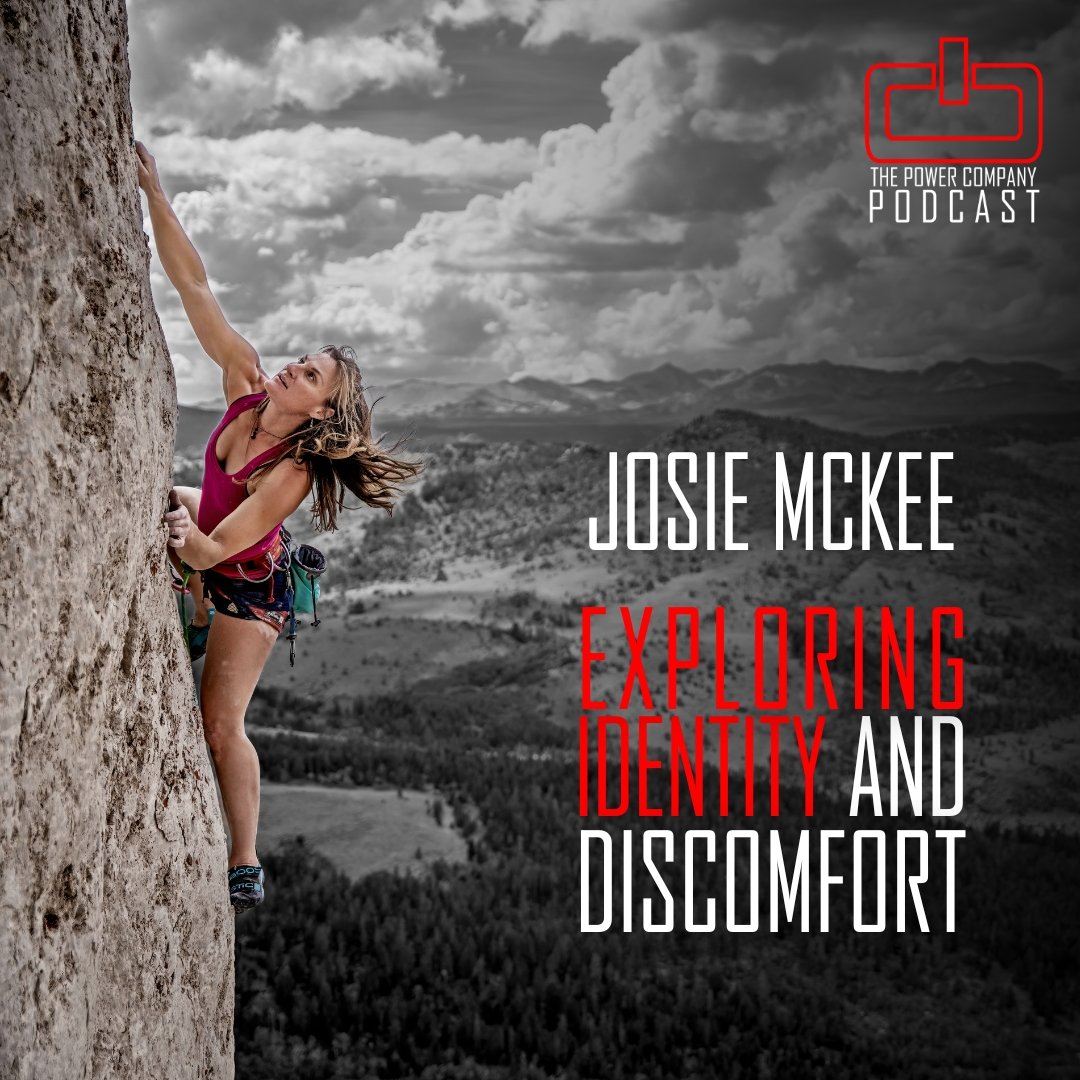








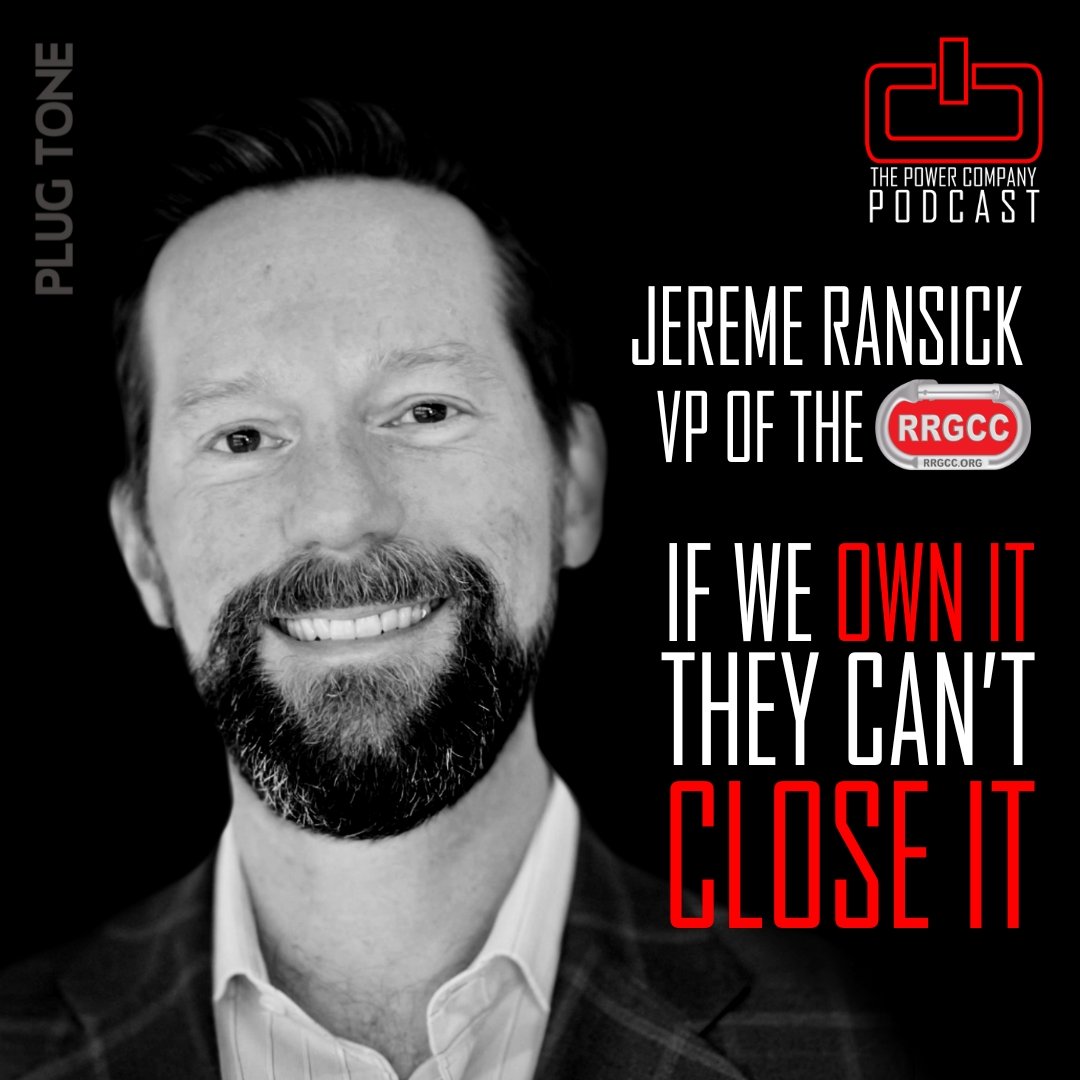



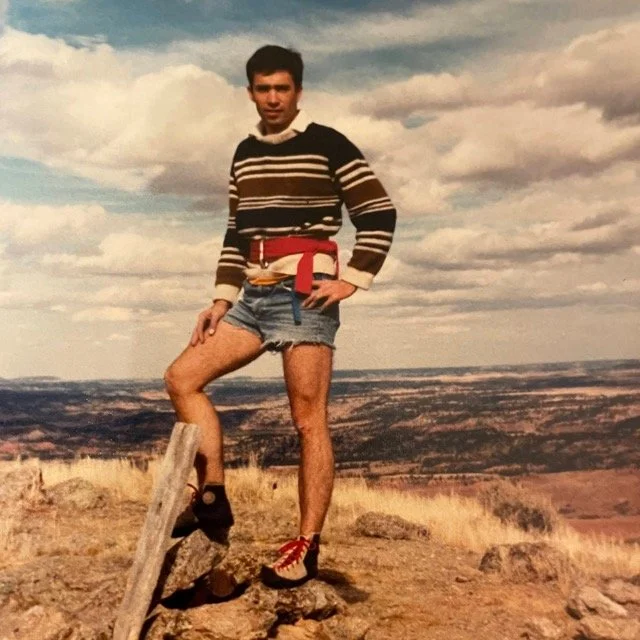

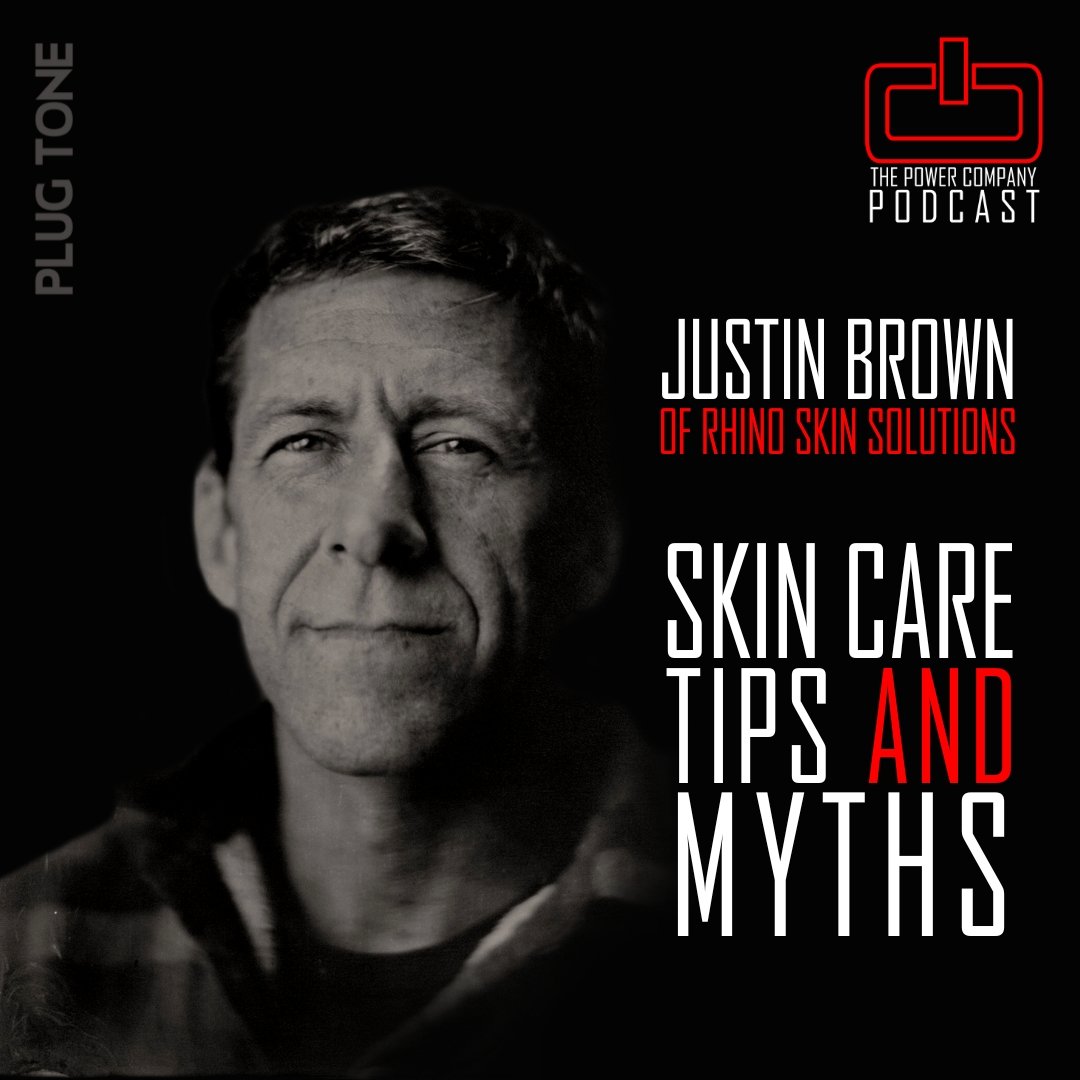



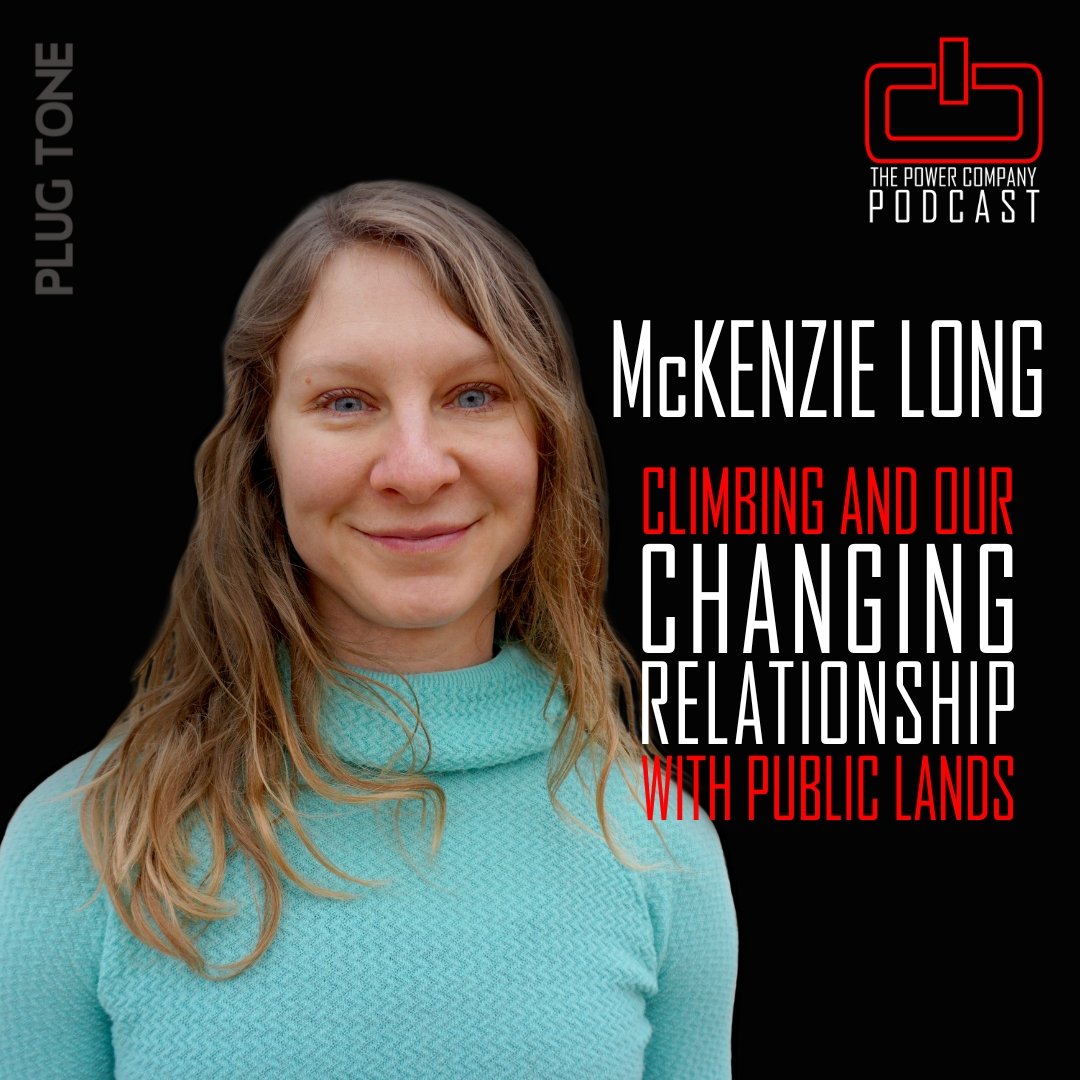
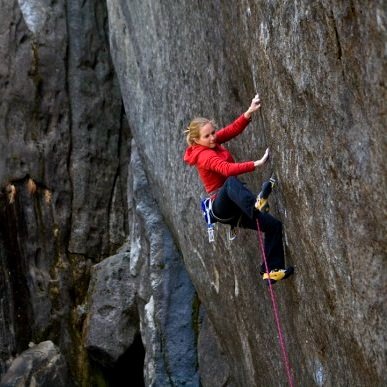
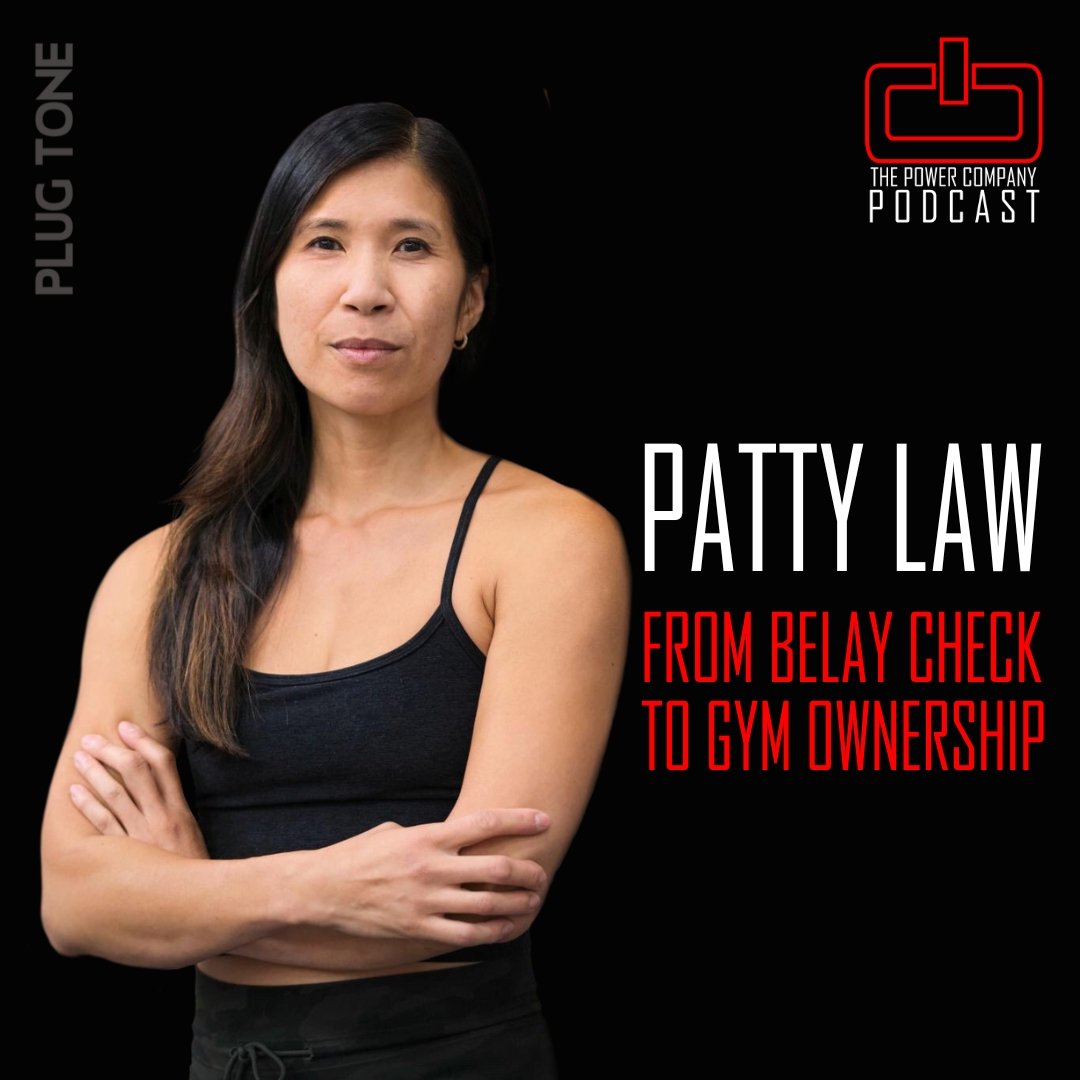


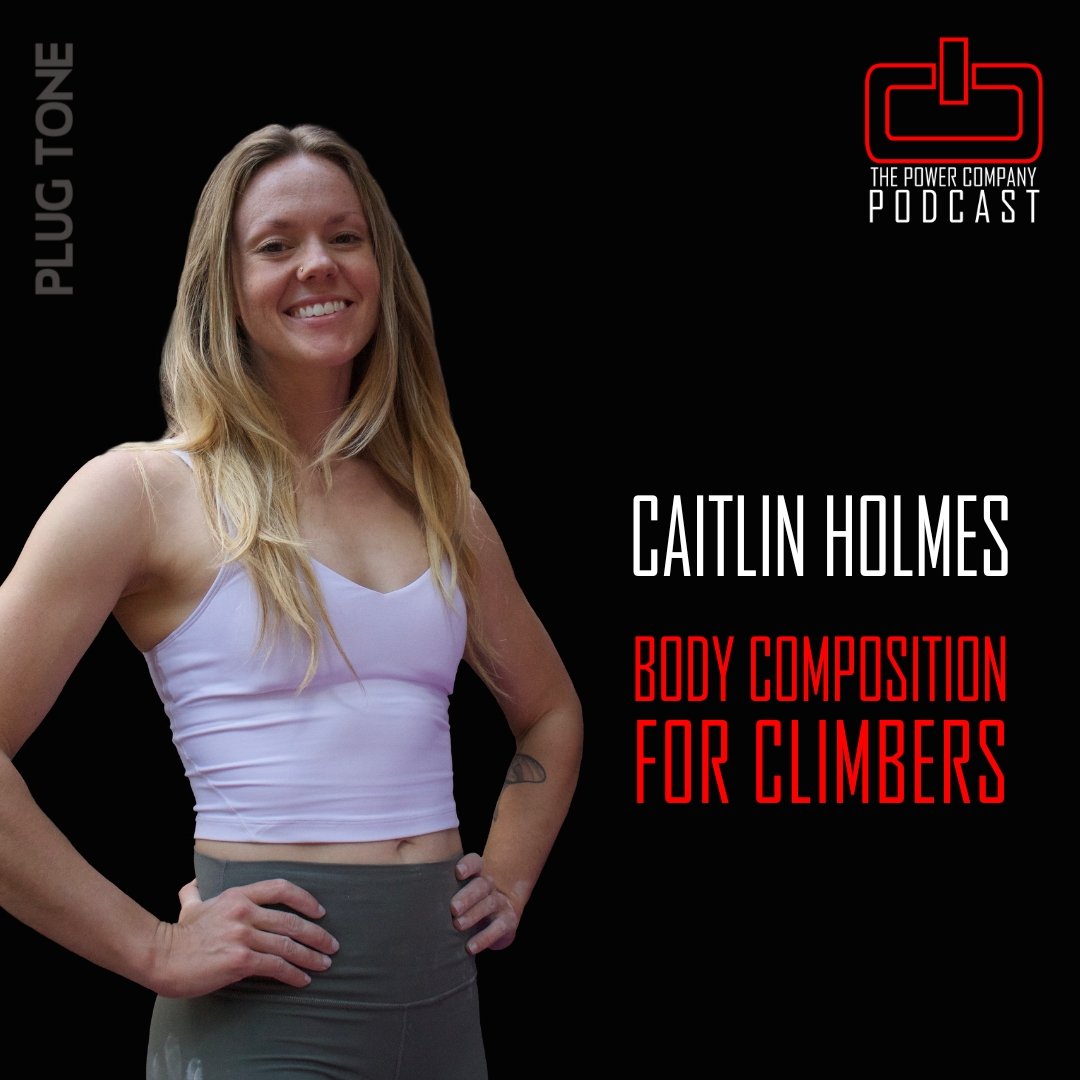
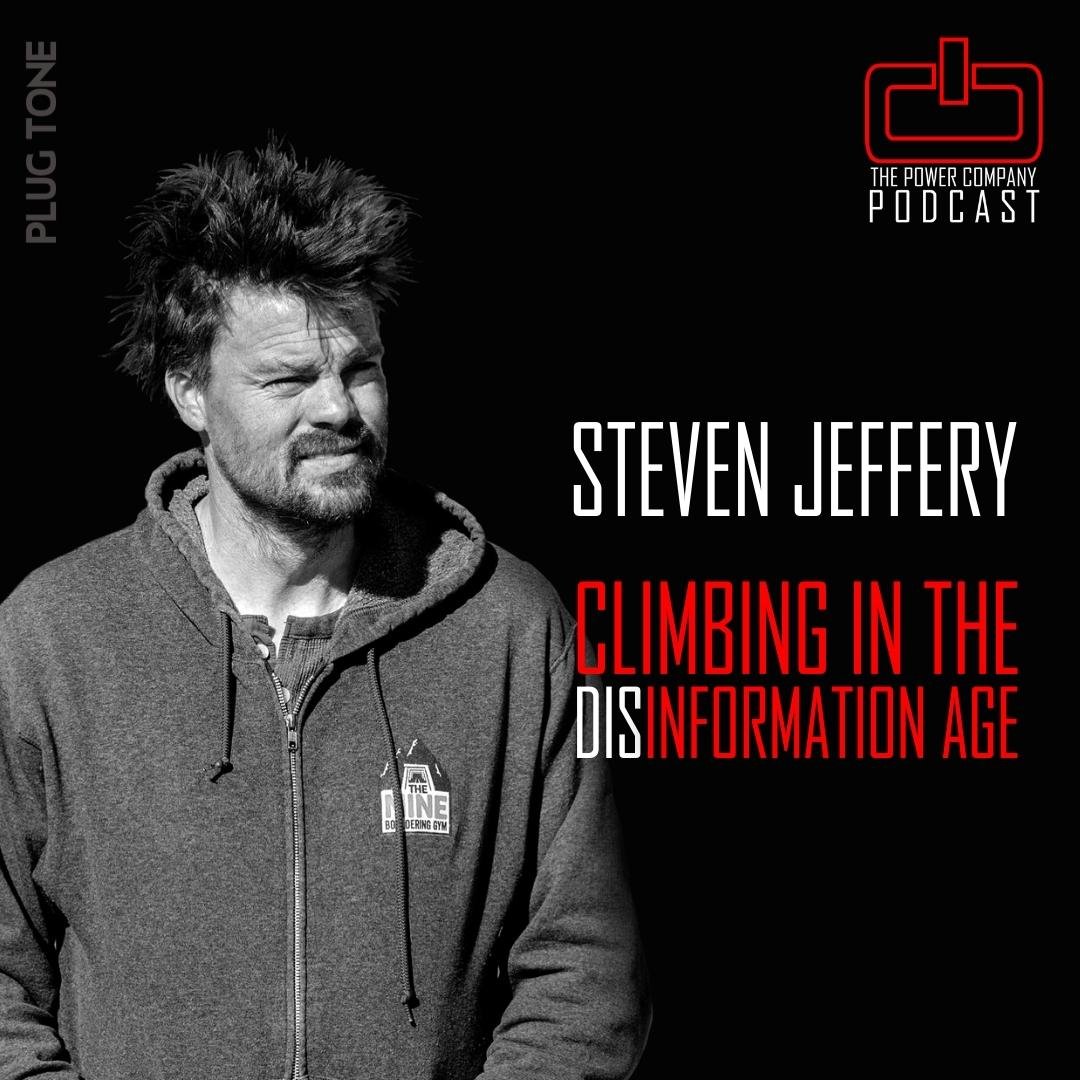
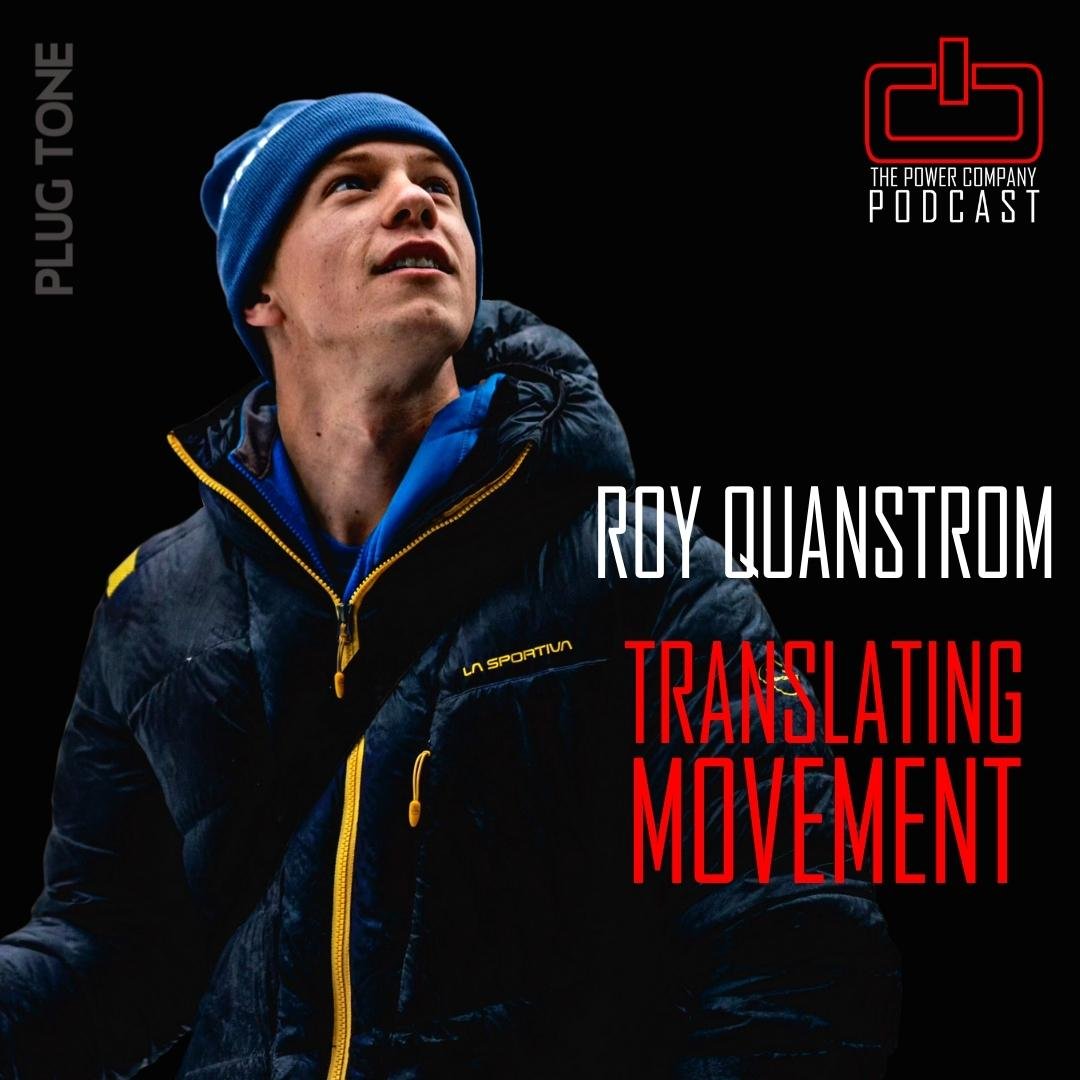




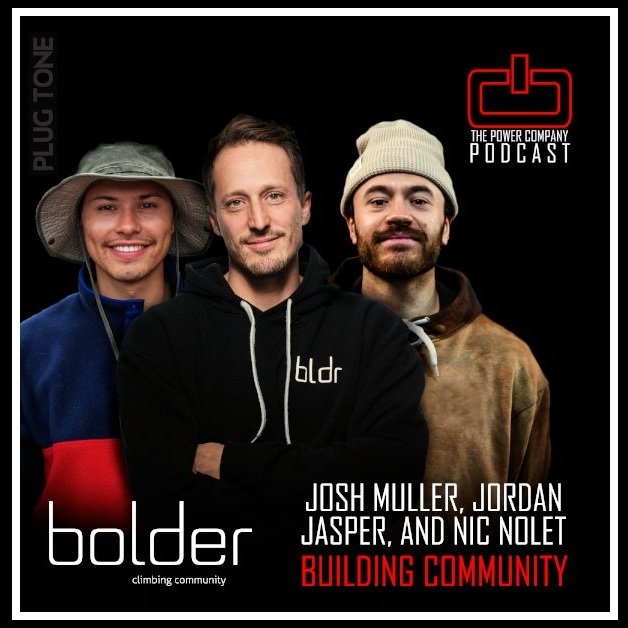

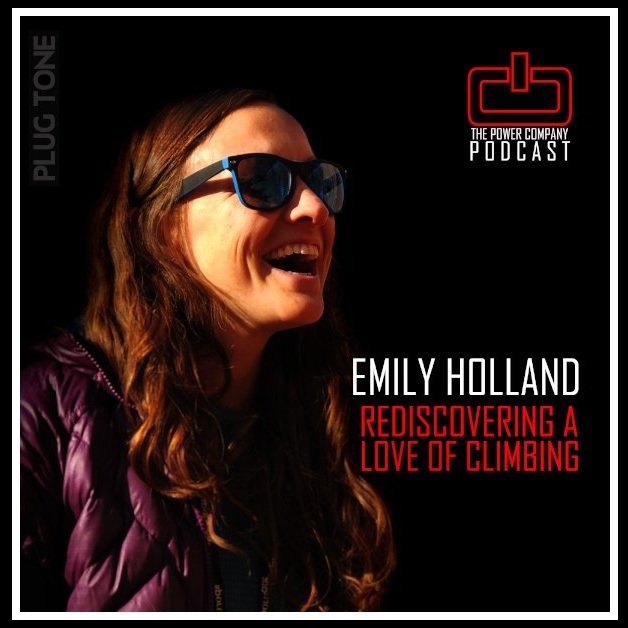



Allyson Gunsallus is a mom, climber, and director of an upcoming film series that will uncover the issues faced by climbers who are parents.